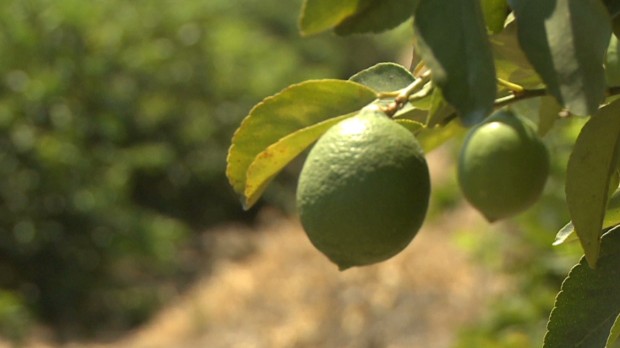
Don't blame your bartender this Cinco de Mayo for tossing a lemon in your Corona. Blame shadowy groups like the Knights Templar Cartel.
While the great lime shortage of 2014 was initially sparked by severe winter weather and drought conditions in Mexico, criminal organizations have used violence and extortion to exacerbate the situation. The price of a case of limes, a mainstay of margaritas, guacamole and summer beers, has more than quadrupled in recent months."Most people in the U.S. don't realize how highly dependent we are on Mexico for certain products. They don't understand how much our economies are intertwined. The bad things happening in Mexico do have an impact on U.S. consumers and U.S. exporters," said David Shirk, a security specialist at the Mexico Institute of the Woodrow Wilson International Center for Scholars.
Mexico is the world's largest exporter of limes, sourcing almost all of the limes the U.S. consumes.
War on drugs fallout
The ability of organized crime to impact lime prices highlights unintended consequences tied to the U.S.-led war on drugs.
The Knights Templar, which is based in the lime producing epicenter of Michoacán, is a splinter group of La Familia Michoacana, the drug cartel dismantled by law enforcement around 2011.
"Breaking up major organized crime groups into smaller pieces does not necessarily make them more manageable," said Shirk.
 |
| Mexican limes: Hot demand, rising prices |
Cartel members have demanded a certain percentage of orchard owners' lime shipments, threatening to burn down their farms, rape their daughters or kill their children.
Business owners inside and outside the lime industry have recently pushed back by forming vigilante "self-defense" groups, which have battled the drug cartels in violent shootouts.
"They decided, 'We are losing our livelihood and need to defend our land.' It's very Wild West," said O'Neil.
The Mexican government has responded forcefully with a military presence and told the vigilante groups to stand down by May 10. It remains to be seen if they will do so.
"The influence of organized crime groups is extremely pervasive and affects daily life in ways that are shocking," said Shirk. "It's part of daily life in Michoacán and one of the unintended consequences of the drug war."
No comments:
Post a Comment